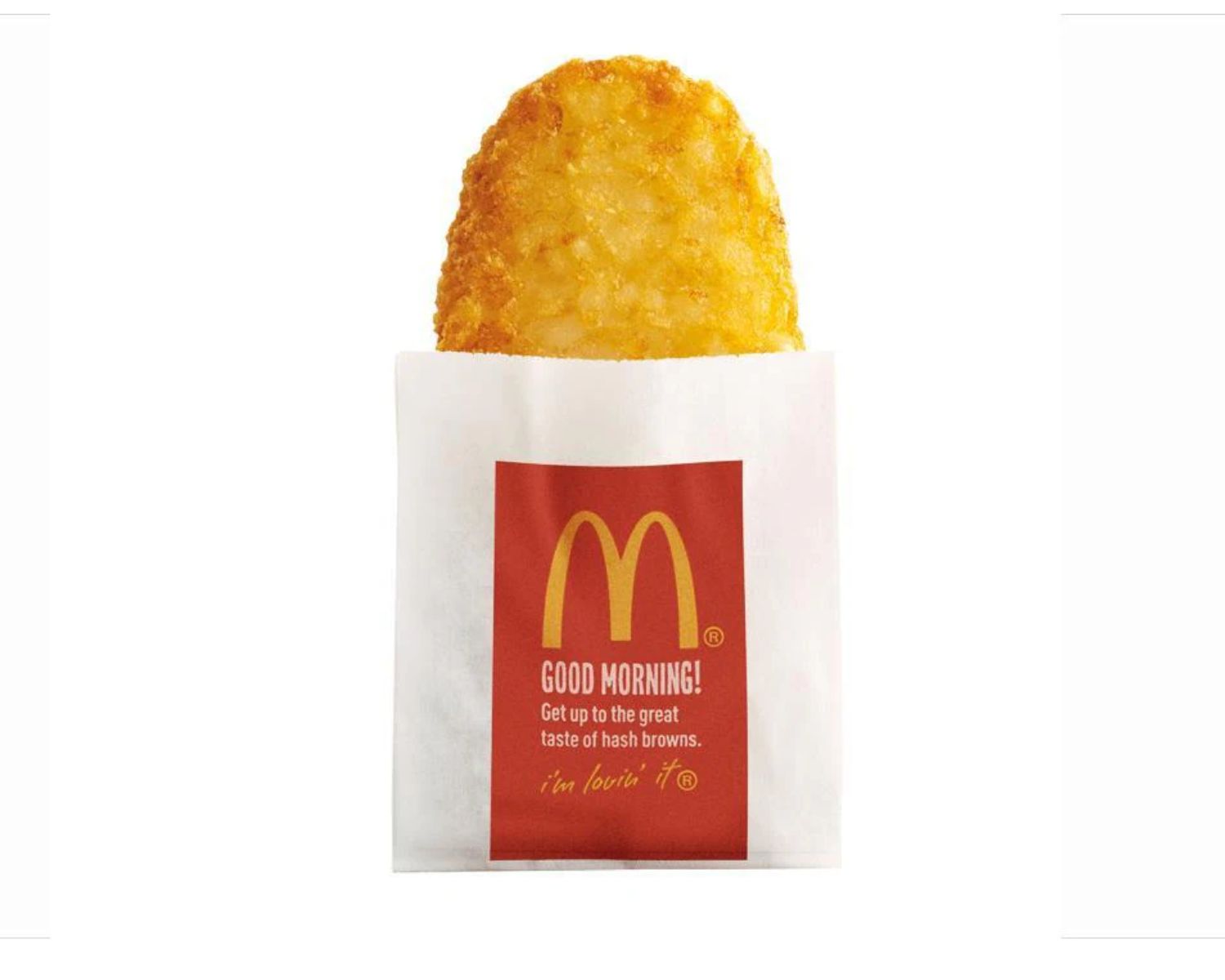
When it comes to fast food breakfast options, McDonald’s is a popular choice for many. One item that often finds its way into morning meals is the beloved McDonald’s Hash Brown. Crispy on the outside and soft on the inside, these golden wonders have won the hearts of many breakfast enthusiasts.
But if you’re watching your nutrition and wondering about the calorie and nutrient content of a McDonald’s Hash Brown, you’ve come to the right place! In this article, we will explore the 19 McDonald’s Hash Brown nutrition facts that you need to know.
From calories and fat content to carbohydrates and sodium levels, we’ll delve into the nutritional breakdown of this tasty breakfast item. By the end of this article, you’ll have a clear understanding of what you’re consuming when you grab one of these delicious treats from McDonald’s.
Key Takeaways:
- McDonald’s Hash Browns are a tasty, low-calorie breakfast option with a moderate amount of fat and carbs. Enjoy them in moderation as part of a balanced diet.
- While delicious, McDonald’s Hash Browns are not a significant source of essential nutrients like fiber, calcium, and potassium. Balance them with nutrient-rich foods for a healthy breakfast.
Calories
A single McDonald’s Hash Brown contains approximately 150 calories, making it a relatively low-calorie breakfast option.
Fat Content
A Hash Brown contains around 9 grams of fat, with 1.5 grams being saturated fat. It is important to consume saturated fats in moderation as part of a balanced diet.
Carbohydrates
Each McDonald’s Hash Brown provides approximately 15 grams of carbohydrates, which can be a great source of energy to kick-start your day.
Protein
Surprisingly, a Hash Brown contains around 2 grams of protein. While it is not a significant source, it can contribute to your daily protein intake.
Sodium
A single Hash Brown contains about 310 milligrams of sodium. This can be a concern for individuals monitoring their sodium intake, such as those with high blood pressure.
Fiber
Unfortunately, McDonald’s Hash Browns are not a significant source of fiber, with only 1 gram per serving.
Sugar Content
A Hash Brown contains less than 1 gram of sugar, making it a relatively low-sugar breakfast option.
Vitamin C
While not a significant source, a Hash Brown does provide a small amount of Vitamin C, contributing to your daily nutrient intake.
Calcium
Unfortunately, Hash Browns do not offer a significant amount of calcium, a vital mineral for bone health.
Iron
Each Hash Brown contains a small amount of iron, which plays a crucial role in transporting oxygen throughout the body.
Potassium
Unfortunately, Hash Browns are not a significant source of potassium, which is essential for maintaining healthy blood pressure and nerve function.
Vitamin A
McDonald’s Hash Browns are not a significant source of Vitamin A, which is important for good vision and a healthy immune system.
Vitamin B6
A single Hash Brown contains a small amount of Vitamin B6, contributing to the body’s overall metabolism and brain function.
Phosphorus
Hash Browns contain a small amount of phosphorus, helping to maintain strong bones and teeth.
Vitamin B12
A Hash Brown provides a small amount of Vitamin B12, which is crucial for the production of red blood cells.
Zinc
Zinc can be found in small quantities in Hash Browns, contributing to the normal functioning of the immune system.
Magnesium
McDonald’s Hash Browns are not a significant source of magnesium, a mineral important for maintaining good heart health and bone strength.
Cholesterol
A single Hash Brown contains approximately 0 milligrams of cholesterol.
Trans Fat
Hash Browns do not contain any trans fats, which are considered to be the most harmful type of dietary fat.
While McDonald’s Hash Browns can be a tasty breakfast treat, it’s important to enjoy them in moderation as part of a balanced diet. Remember, these nutrition facts are based on a single serving, and the nutritional values may vary based on serving size and preparation methods.
So, the next time you grab a McDonald’s breakfast, keep these 19 McDonald’s Hash Brown nutrition facts in mind to make informed choices about your morning meal.
Conclusion
In conclusion, McDonald’s hash browns can be a tasty and satisfying addition to your breakfast or as a quick snack option. However, it’s important to be mindful of their nutritional content. While they are delicious and crispy, they are high in calories, fat, and sodium. Consuming them in moderation as part of a balanced diet is key.
FAQs
1. How many calories are in a McDonald’s hash brown?
A McDonald’s hash brown contains about 150 calories.
2. Are McDonald’s hash browns gluten-free?
No, McDonald’s hash browns are not gluten-free as they contain wheat-based ingredients.
3. Do McDonald’s hash browns contain any artificial flavors or preservatives?
No, McDonald’s hash browns do not contain any artificial flavors or preservatives. They are made with simple ingredients like potatoes, salt, and cooking oil.
4. Can I eat a McDonald’s hash brown if I am on a low-sodium diet?
It is advisable to limit or avoid McDonald’s hash browns if you are on a low-sodium diet as they contain a significant amount of sodium.
5. Are there vegetarian-friendly options in McDonald’s hash browns?
Yes, McDonald’s hash browns are suitable for vegetarians as they do not contain any meat or animal-derived ingredients.
6. Can I reheat McDonald’s hash browns?
Yes, McDonald’s hash browns can be reheated. However, it is best to consume them immediately after purchase for optimal taste and texture.
Was this page helpful?
Our commitment to delivering trustworthy and engaging content is at the heart of what we do. Each fact on our site is contributed by real users like you, bringing a wealth of diverse insights and information. To ensure the highest standards of accuracy and reliability, our dedicated editors meticulously review each submission. This process guarantees that the facts we share are not only fascinating but also credible. Trust in our commitment to quality and authenticity as you explore and learn with us.
